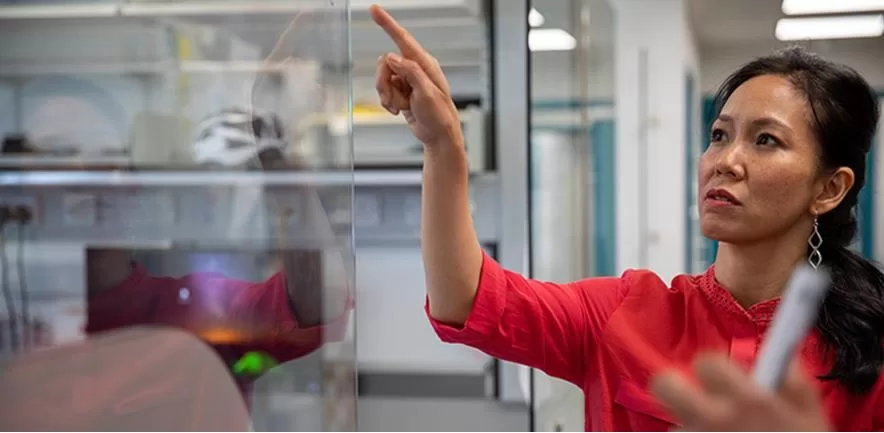Health
New ‘Metal Detector’ Tool Helps Find Tumours We Can Fight More Easily

Imagine a tool that works like a metal detector, but instead of finding buried treasure, it hunts down cancer tumours that are easier to treat. That’s exactly what researchers at the University of Cambridge have developed—an algorithm called PRRDetect that could change the way we tackle cancer, giving doctors a clearer path to help patients live longer, healthier lives.
Unveiling Tumour DNA Secrets
In a study shared today in Nature Genetics, the Cambridge team, working with the NIHR Cambridge Biomedical Research Centre, dug into the DNA of 4,775 tumours from seven different cancers. They used data from Genomics England’s 100,000 Genomes Project to build PRRDetect, a tool that spots tumours with broken DNA repair systems—flaws that make them more likely to respond well to treatment. This could one day help doctors figure out which patients will benefit most from specific therapies, paving the way for treatments tailored to each person’s unique cancer.
Funding Hope for Better Treatments
The research, supported by Cancer Research UK and the National Institute for Health and Care Research (NIHR), is a big step toward making cancer care more personal. Professor Serena Nik-Zainal from the Early Cancer Institute at the University of Cambridge, who led the study, explained: “Genomic sequencing is now far faster and cheaper than ever before. We are getting closer to the point where getting your tumour sequenced will be as routine as a scan or blood test.
“To use genomics most effectively in the clinic, we need tools that give us meaningful information about how a person’s tumour might respond to treatment. This is especially important in cancers where survival is poorer, like lung cancer and brain tumours.
“Cancers with faulty DNA repair are more likely to be treated successfully. PRRDetect helps us better identify those cancers and, as we sequence more and more cancers routinely in the clinic, it could ultimately help doctors better tailor treatments to individual patients.”
Cracking the Code of Mutations
The team zeroed in on tiny changes in DNA called ‘indel’ mutations—where bits of the genetic code are added or removed. They noticed unusual patterns in these mutations in tumours with broken DNA repair systems, a condition called ‘post-replicative repair dysfunction’ or PRRd. Using these patterns, they created PRRDetect to pick out these tumours from a full DNA scan.
Boosting Immunotherapy Success
Tumours with PRRd are often more responsive to immunotherapy, a treatment that uses the body’s immune system to fight cancer. The hope is that PRRDetect could act like a guide, helping doctors spot patients whose cancers are more likely to shrink with immunotherapy, giving them a better shot at recovery.
Building on Genomic Discoveries
This work builds on earlier research by Professor Nik-Zainal, who explored thousands of cancer genomes and uncovered hidden patterns tied to the disease. This time, her team focused on cancers with more PRRd tumours, like those in the bowel, brain, womb, skin, lungs, bladder, and stomach. They used whole genome sequences from the 100,000 Genomes Project, a groundbreaking effort by Genomics England and NHS England that mapped 100,000 genomes from around 85,000 NHS patients with rare diseases or cancer.
Mapping Cancer’s Patterns
The study found 37 distinct patterns of indel mutations across the seven cancers they studied. Ten were linked to known causes, like smoking or UV light exposure. Eight tied back to PRRd. The other 19 are new and might point to unknown causes of cancer or glitches that happen when cells turn cancerous.
Voices of Hope
Dr Iain Foulkes, Executive Director of Research and Innovation at Cancer Research UK, said: “Genomic medicine will revolutionise how we approach cancer treatment. We can now get full readouts of tumour DNA much more easily, and with that comes a wealth of information about how an individual’s cancer can start, grow and spread.
“Tools like PRRDetect are going to make personalised treatment for cancer a reality for many more patients in the future. Personalising treatment is much more likely to be successful, ensuring more people can live longer, better lives free from the fear of cancer.”
Mike Lewis, NIHR Scientific Director, added: “Cancer is a leading cause of death in the UK so it’s impressive to see our research lead to the creation of a tool to determine which therapy will lead to a higher likelihood of successful cancer treatment.”
Professor Matt Brown, Chief Scientific Officer at Genomics England, said: “Genomics is playing an increasingly important role in healthcare and these findings show how genomic data can be used to drive more predictive, preventative care leading to better outcomes for patients with cancer.
“The creation of this algorithm showcases the immense value of whole genome sequencing not only in research but also in the clinic across multiple diverse cancer types in advancing cancer care.”
A Vision for the Future
The University of Cambridge is raising funds for a new Cambridge Cancer Research Hospital, in partnership with Cambridge University Hospitals NHS Foundation Trust. This hospital will serve patients across the East of England, but its research could touch the lives of cancer patients everywhere, offering hope for better diagnoses and treatments in the future.
Source: University of Cambridge



















































